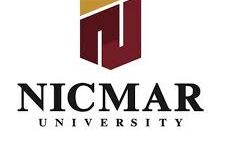New Delhi 19th February 2024: Nova Dairy along with Solidaridad Regional Expertise Centre had started a transformative program in Fatehabad, Uttar Pradesh, in 2021. focusing on promoting climate smart dairy practices benefitting the farmers and reducing the GHGs emissions from the dairy supply chain on ground.
The program emphasized on changing the housing system; to benefit farmers, for animal welfare and manure management. The project has achieved some good results like the reduction in subclinical Mastitis cases and thus less usage of antibiotics which is good from consumer’s perspective. The project has also resulted in milk production increase of farmers by about 15% and also reduction in input cost. The project used one of the globally accepted tools (Cool Farm Tool) to measure the reduction of GHGs emissions on some demo farms resulting in reduction of around 17% emissions.
The project implementation involved organizing health camps, training, one to one interaction with farmers, farmers field schools, installation of bio digesters, using early pregnancy urine based testing kits, California Mastitis test among others.
The project strategy is long term and thus focus is also planting trees on dairy farmers benefiting farmers, animals and environment. The project has already planted trees like – Jackfruit, Mango, Kadam, Flamboyant (Gul mohar) Plants etc.
The project also focussed on fodder production introducing varieties with high biomass and nutritional value. The project also incorporated good soil health practices on these demos. This has resulted in a win-win situation for farmers, animals and the local ecosystem.
NOVA Dairy has started a journey towards a climate smart and sustainable future and for sure there is a long way to go but the beginning has started.
“Our commitment to the welfare of farmers and the environment is at the core of Nova Dairy’s values,” stated Mr. Ravin Saluja, Director of Nova Dairy Products, in response to the initiative. “We hope to positively influence the dairy industry and contribute to the general development of rural communities. We are now teaching farmers better livestock management practices and introducing sustainable solutions like biodigesters, thus giving back to nature as well.”
 Newspatrolling.com News cum Content Syndication Portal Online
Newspatrolling.com News cum Content Syndication Portal Online







